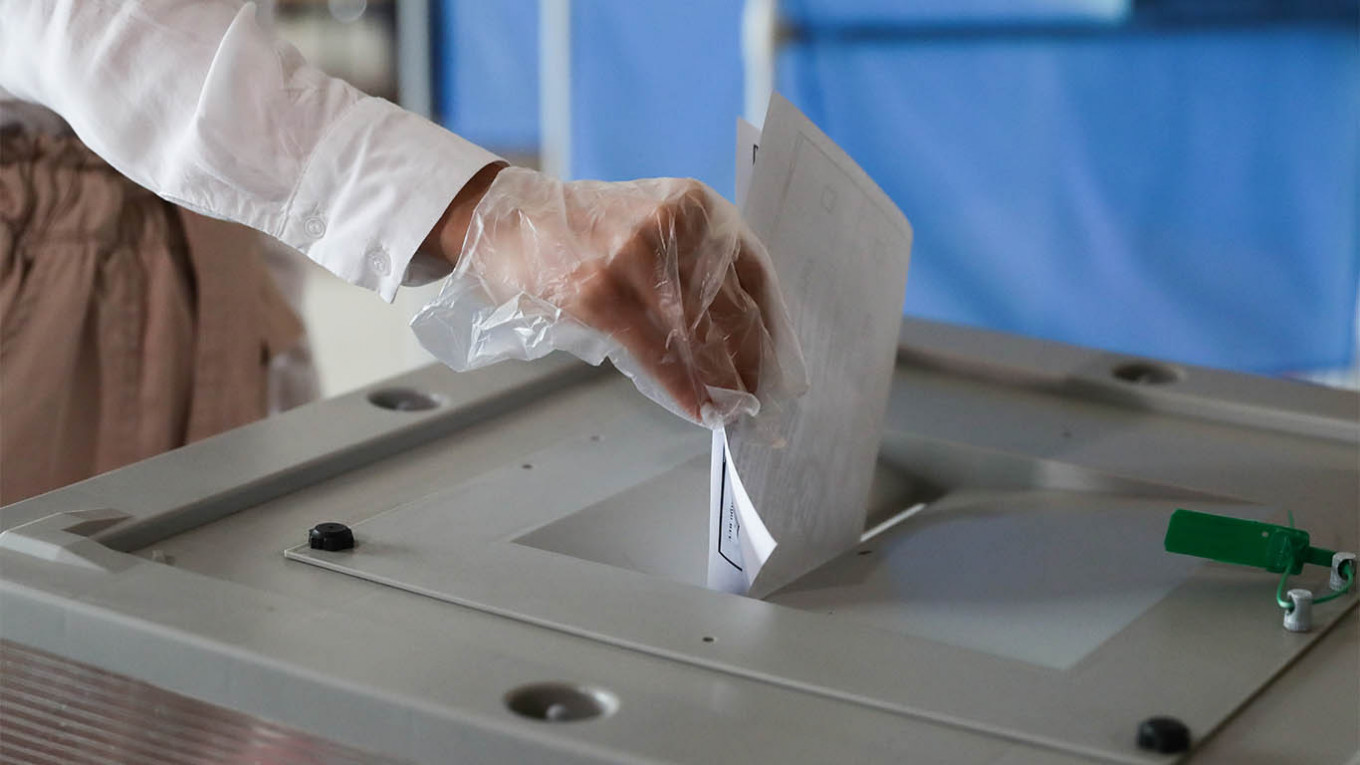
A potentially massive online vote-buying campaign is unfolding ahead of Russia’s vote on constitutional amendments that would allow President Vladimir Putin to rule until 2036, the independent Dozhd news channel reported Wednesday.
Russians will begin voting next Thursday, ahead of the July 1 nationwide vote, on a set of constitutional amendments that include social guarantees and a clause resetting Putin’s term limits. Early voting is already underway in some regions due to the coronavirus pandemic, while Moscow and the Nizhny Novgorod region will allow online voting to prevent the virus’ spread.
WhatsApp group admins are handing out batches of SIM cards and databases of elderly Moscow residents that can be used to register them for the online vote, according to a Dozhd journalist who obtained 25 SIM cards and part of the database.
The WhatsApp admins offer to pay 75 rubles ($1) for each account registered on the Moscow mayor’s office website and 50 rubles ($0.70) for each vote in favor of the amendments, Dozhd reported.
“Given that a trained operator can register up to 50 accounts per day and the campaign has been running for more than six months, [the vote-buying scheme could involve] tens of thousands of registered voting participants,” it said.
Moscow authorities say that nearly 700,000 people have registered to vote as of Monday.
Artyom Kostyrko, deputy chief of the Moscow mayor’s office IT department that developed the e-vote, told Dozhd that the system is secure from “illegal actions.”
Election officials have vowed to ensure that the vote is carried out without violations and in compliance with health protocols in the midst of the Covid-19 outbreak.
Police sought to take the journalist, Anton Bayev, to the station after midnight Thursday to obtain testimony after receiving an anonymous tip on a criminal voting-rights violation, Dozhd reported. The Moscow election commission said it contacted the police in connection with the vote-buying report.
The officers left after Bayev provided testimony on site.
A report by the independent election-monitoring group Golos blasted the nationwide vote for failing to protect voting rights, ensure impartiality during the campaign period and protect basic civil rights, Interfax reported.
The NGO noted that “many citizens are ready to openly declare attempts to force them to vote” during the campaign because of the “radical” expansion of early and remote-voting opportunities amid Russia’s coronavirus outbreak.
Golos accused state bodies and election commissions of launching a “large-scale campaign in support of adopting the amendments under the guise of public information.”
